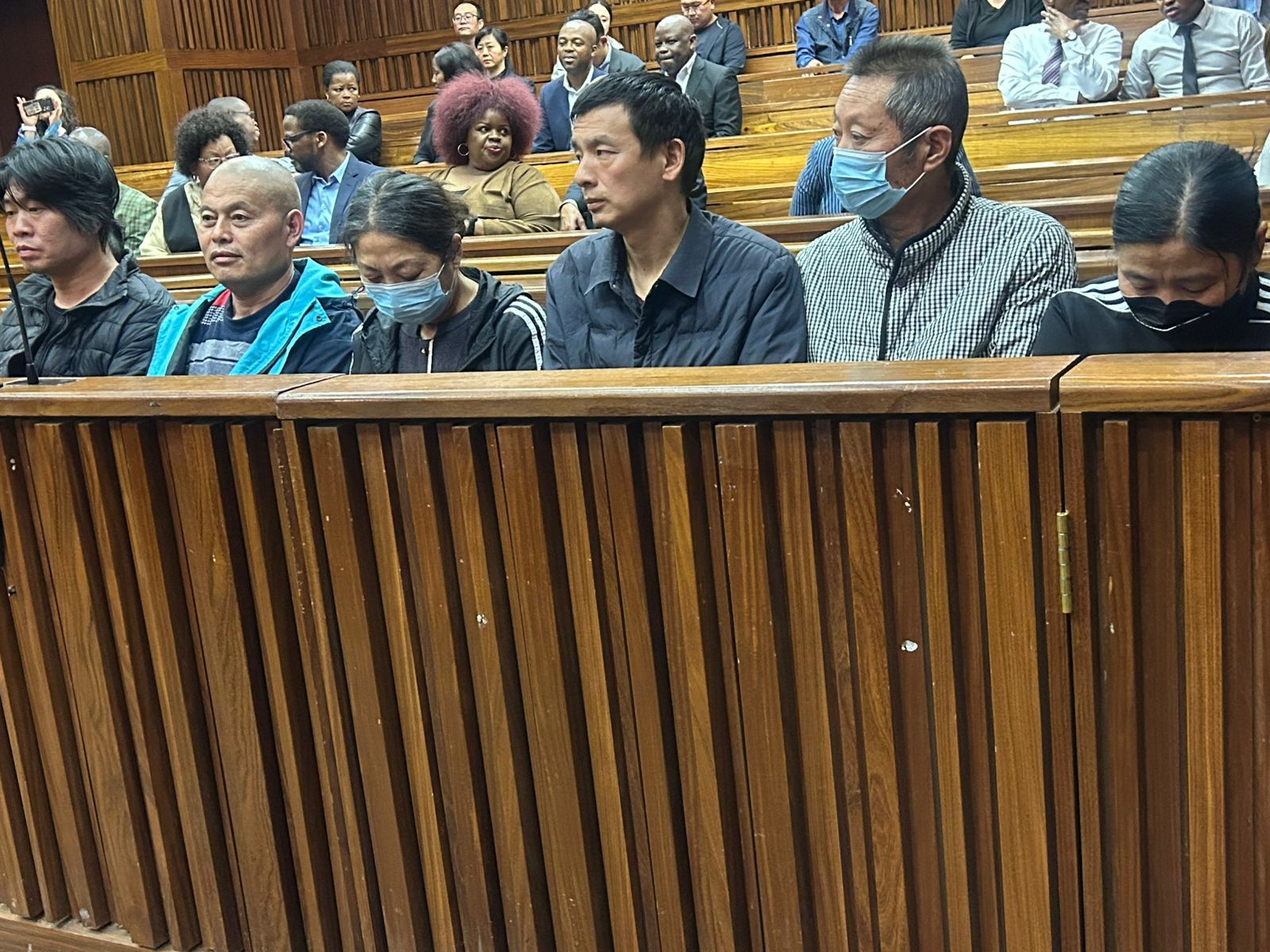
Johannesburg – The high court in Johannesburg has imposed 20-year prison sentences on seven Chinese nationals for multiple charges of human trafficking and child labor.
On Wednesday, September 10, 2025, the Gauteng South Division of the High Court of South Africa delivered sentences to the Chinese nationals as well as one business entity.
Evidence presented during the trial showed that the group operated an illegal factory known as Beautiful City (Pty) Ltd in Village Deep, Johannesburg.
During the proceedings, it was disclosed that some of the child victims were trafficked into South Africa at the young age of 14.
These workers were undocumented, forced to work seven days a week, and were paid below the minimum wage.
Many victims suffered serious injuries while employed at the factory.
The individuals were smuggled into the country concealed in shipping containers.
Authorities conducted a raid on the factory following a tip-off, revealing 91 Malawian nationals, including children, living and working under deplorable conditions.
This operation involved a collaborative inspection led by the Department of Employment and Labour’s Inspections and Enforcement Services (IES), the South African Police Service’s Directorate for Priority Crime Investigation (the HAWKS), and the Department of Home Affairs.
The arrests of the Chinese nationals occurred on November 12, 2019.

The defendants faced a total of 160 charges, leading to direct sentences of 20 years each for various offenses, including human trafficking, child labor, and breaches of labor laws.
Sentences consisted of 20 years for 11 counts of trafficking, 10 years for each individual for kidnapping, and five years for each for debt bondage, in addition to a R300,000 fine for the business entity (Beautiful Life (Pty) Ltd).
The maximum penalties were enforced for all labor law violations, and all offenders were deemed ineligible to possess firearms.
Judge Mhango, in his ruling, underscored the gravity of the crimes, stating that human trafficking, kidnapping, and bonded labor are among the most serious offenses faced by the court.
The Ministry of Justice and Constitutional Development, alongside the Ministry of Employment and Labour, has lauded the sentences.
Employment and Labour Minister Nomakhosazana Meth praised the various governmental departments and law enforcement agencies, particularly the DEL Inspections and Enforcement Services, for their exemplary efforts in this operation.
“The cooperation among government entities has produced a positive outcome. This sends a strong warning to those who think they can continue exploitative practices while flouting labor laws,” commented Minister Meth.
Justice and Constitutional Development Minister Mmamoloko Kubayi echoed this sentiment, stating, “Justice has been served in the fight against human trafficking.”
“We congratulate the National Prosecuting Authority and the South African Police Service for their relentless dedication to achieving justice. Their collaboration once again demonstrates the effectiveness of coordinated law enforcement in dismantling human trafficking networks.”
Deputy Minister of Justice and Constitutional Development Andries Nel emphasized the crucial role played by the National Intersectoral Committee on Trafficking in Persons (NICTIP) in South Africa.
NICTIP is vital in overseeing the national anti-trafficking strategy, bringing together various government agencies, law enforcement, civil society, and international partners to implement the Prevention and Combating of Trafficking in Persons Act, 2013.
“Trafficking in persons is a grave form of modern slavery. Humans are not commodities. Severe sentences in trafficking cases deter perpetrators and signal that exploitation will result in serious consequences,” stressed Deputy Minister Nel.
Deputy Minister of Employment and Labour Jomo Sibiya, who was present at the sentencing, remarked, “This marks a significant victory as labor law violations will now undergo intense scrutiny.”
“Individuals will learn that neglecting labor laws can lead them straight to prison because the age of impunity has ended.”
However, a visibly upset woman, later identified as Nancy, told reporters after the sentencing that her ill mother was among those “unjustly” imprisoned due to language barriers and fear of the company owner.
She revealed that her mother suffered a stroke but could not provide medical documentation due to their financial hardships.
“My mother worked as an administrator; she never had contact with the Malawians,” lamented Nancy, insisting that her mother and others were intimidated by the company owner, choosing to remain silent about his involvement.
She hinted at the possibility of filing an appeal.





